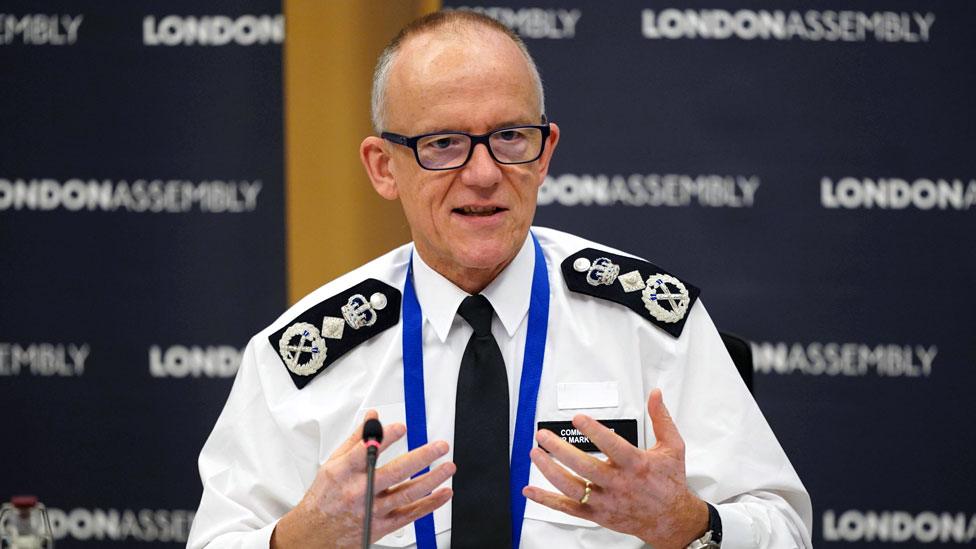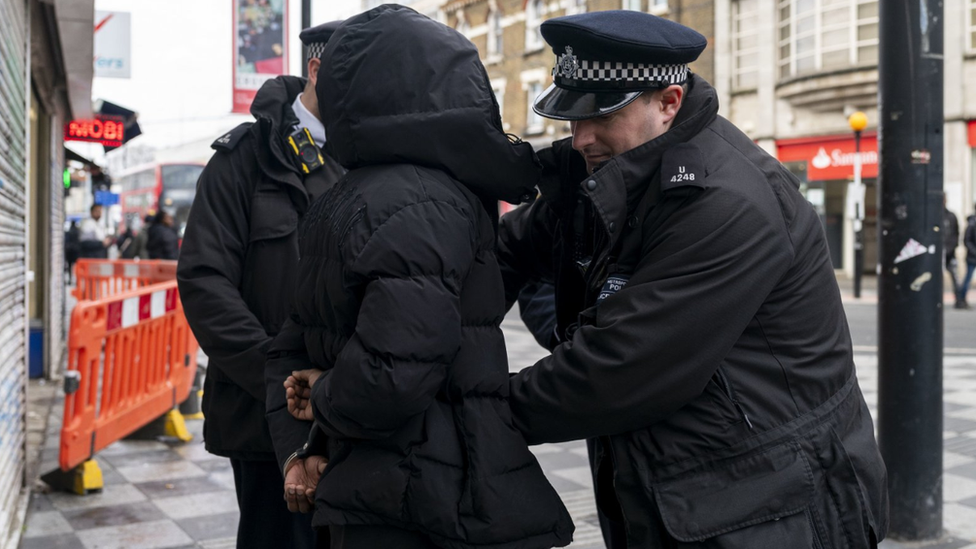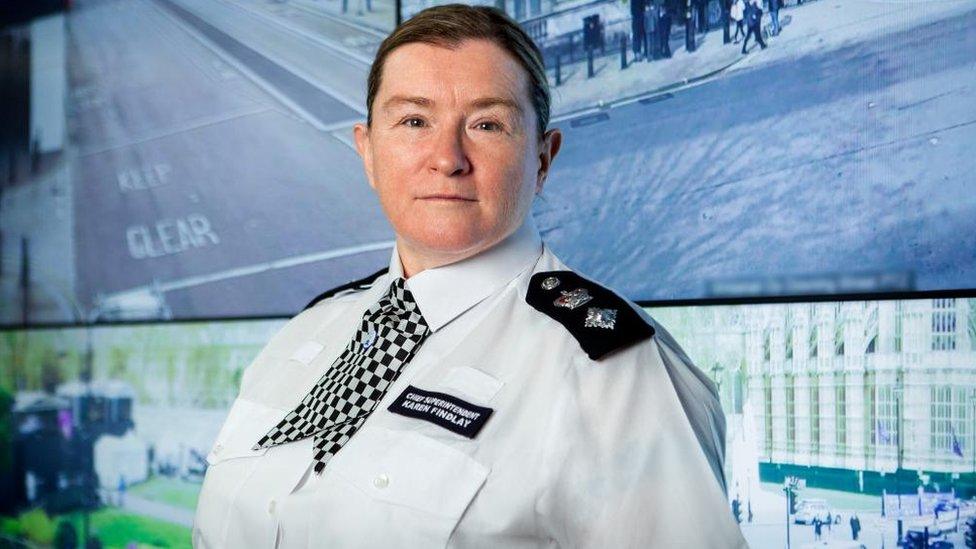Met Police chief 'deeply concerned' over officer number shortfall
- Published

Met Police Commissioner Sir Mark Rowley took questions from London Assembly members on the force's resources
The Met Police is facing a "deeply concerning" shortfall in officer numbers amid recruitment struggles, the commissioner has warned, adding public sector pay levels are an issue.
Sir Mark Rowley said the Met would be 1,400 short at the end of March.
There were about 5,000 fewer officers in the Met than a decade ago, he told City Hall.
He wants to see a "sizeable change" to the "London weighting allowance" to help attract more police officers.
He believes the allowance, an additional wage supplement for public sector workers to cover the increased costs of living in Inner and Outer London, should be raised by at least £2,000. It is set nationally and currently ranges from £1,192 to £7,746.
Under the national programme to replace 20,000 police officer jobs cut during austerity measures from 2010, the Met has been allocated central funding to employ 35,415 full-time equivalent officers.
Giving evidence to the London Assembly Police and Crime Committee on Wednesday, Sir Mark said: "Where we anticipate being at the end of March is around 34,000 ie around 1,400 light."
He said based on projections, the forced anticipated that would "drop by approximately another 1,250" over the next year.
He added: "So we would expect to be at 32,750 roughly at the end of March 2025. Now that is that is deeply concerning to me."

Sir Mark Rowley told the committee he wants 1,600 more PCSOs to put into neighbourhood teams
Sir Mark said the Met as an employer was good at retaining its workforce, but improvements were needed on recruitment.
He said current public sector pay levels, set centrally, were an issue in London's employment market, as well as potential applicants being put off by a series of scandals that had damaged the Met's reputation.
But, he told City Hall, it was not just the Met Police that was facing staffing challenges in the capital.
"The prison service in London has massive vacancies and has to bus in officers from around the country, probation has record vacancies around the country," he said.
'Pushing for pay rises'
"Education and health have by far the highest percentages of vacancies in London compared to other regions."
"The London weighting needs a sizeable change, and we have said we think it needs at least £2,000 [more] to get anywhere near the property prices and affordability in London."
Currently, the London weighting allowance, which is set by central government, is calculated at:
Inner London Weighting - 20% on top of basic salary (minimum of £5,132 and maximum of £7,746)
Outer London Weighting - 15% on top of basic salary (minimum of £4,313 and maximum of £5,436)
Fringe London Weighting - 5% on top of basic salary (minimum of £1,192 and maximum of £2,011)
Sir Mark also said he was pushing for a pay rise for officers that kept "in line with inflation" - while also wanting to change the "initial starting point of pay for Met Police officers".
The commissioner also told City Hall recent protests in central London had "been a real drain on resources" in the past few months as community officers were redeployed.

Listen to the best of BBC Radio London on Sounds and follow BBC London on Facebook, external, X, external, formerly known as Twitter, and Instagram, external. Send your story ideas to hello.bbclondon@bbc.co.uk, external
- Published18 February 2024
